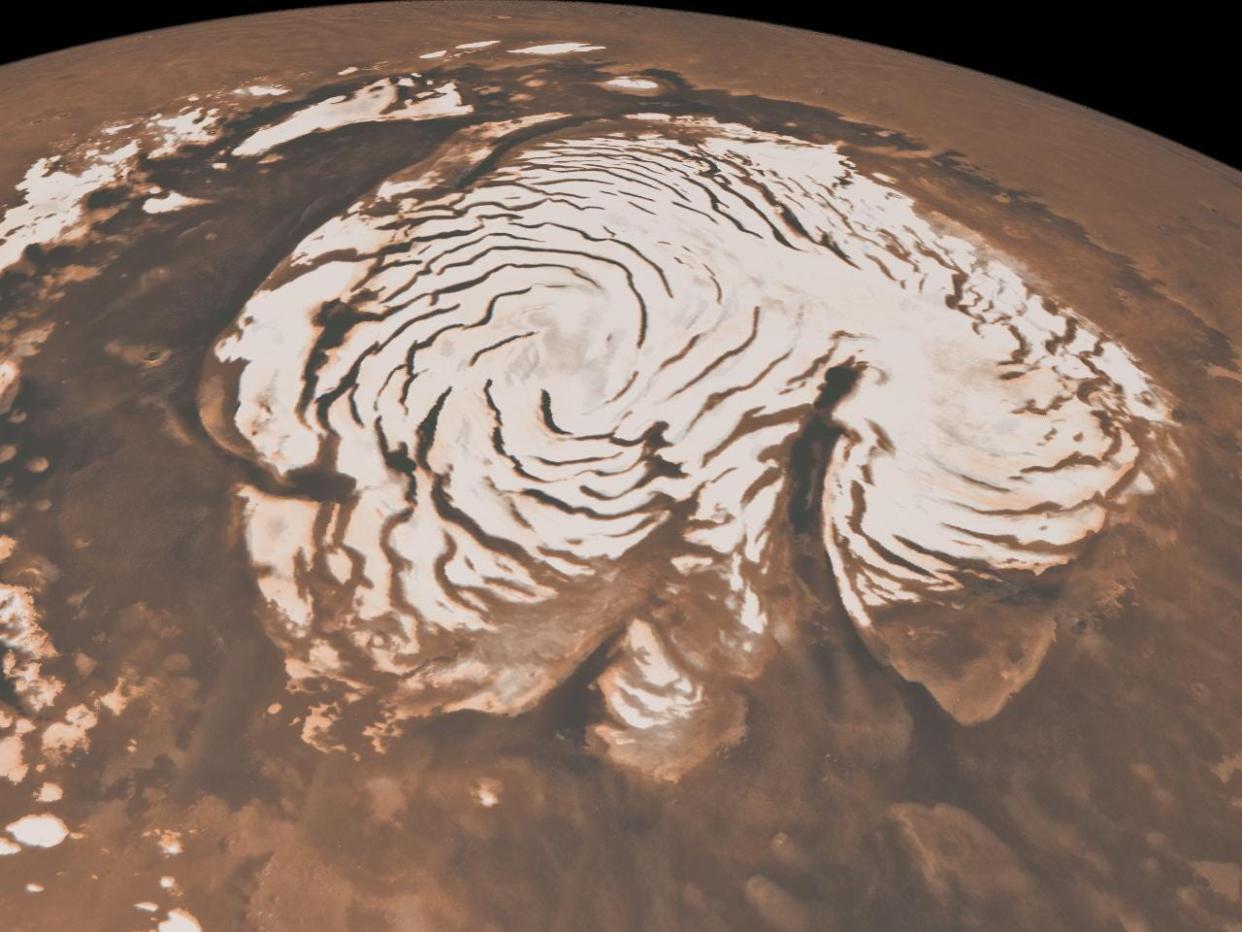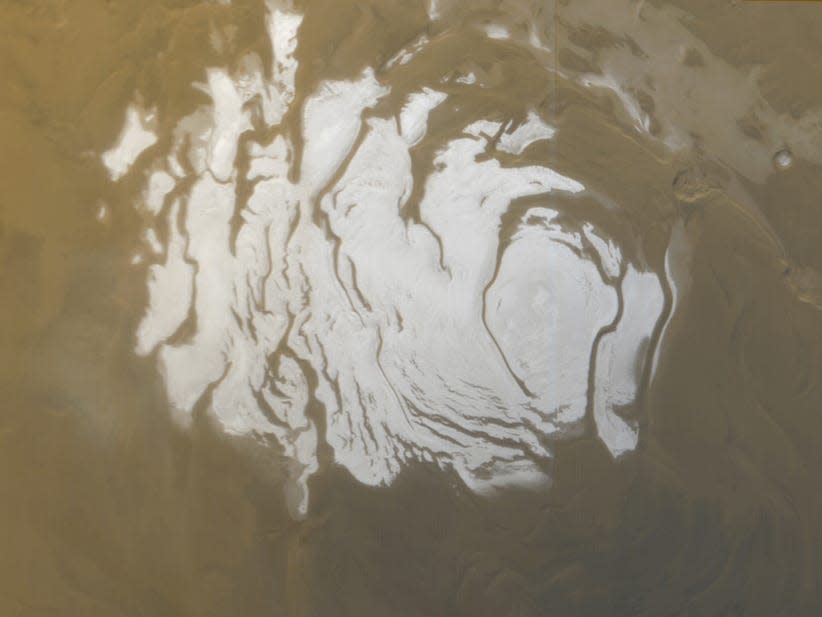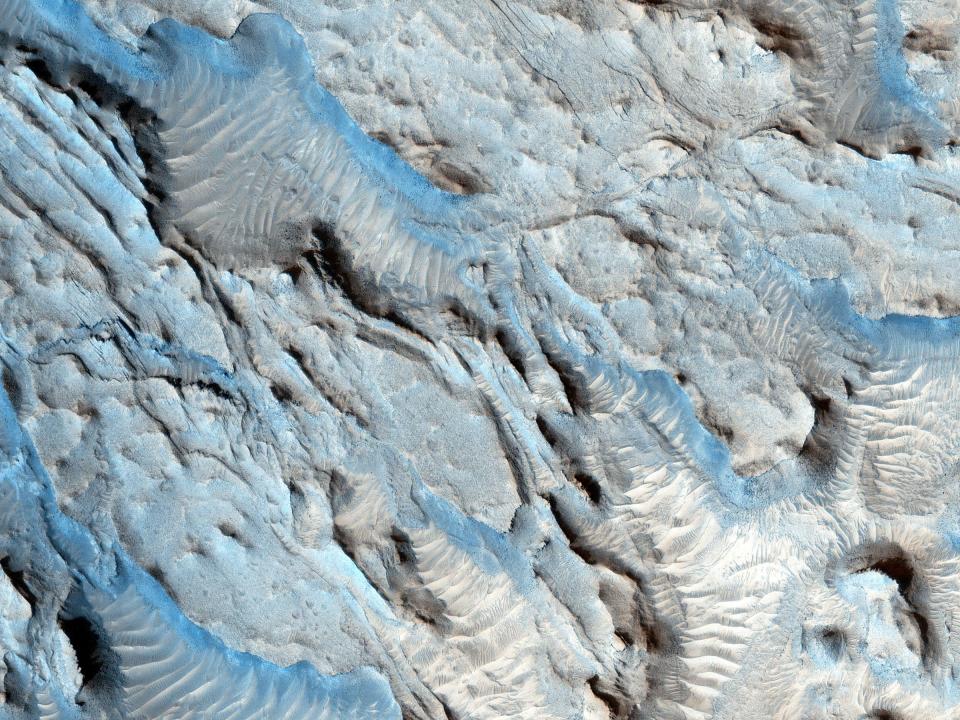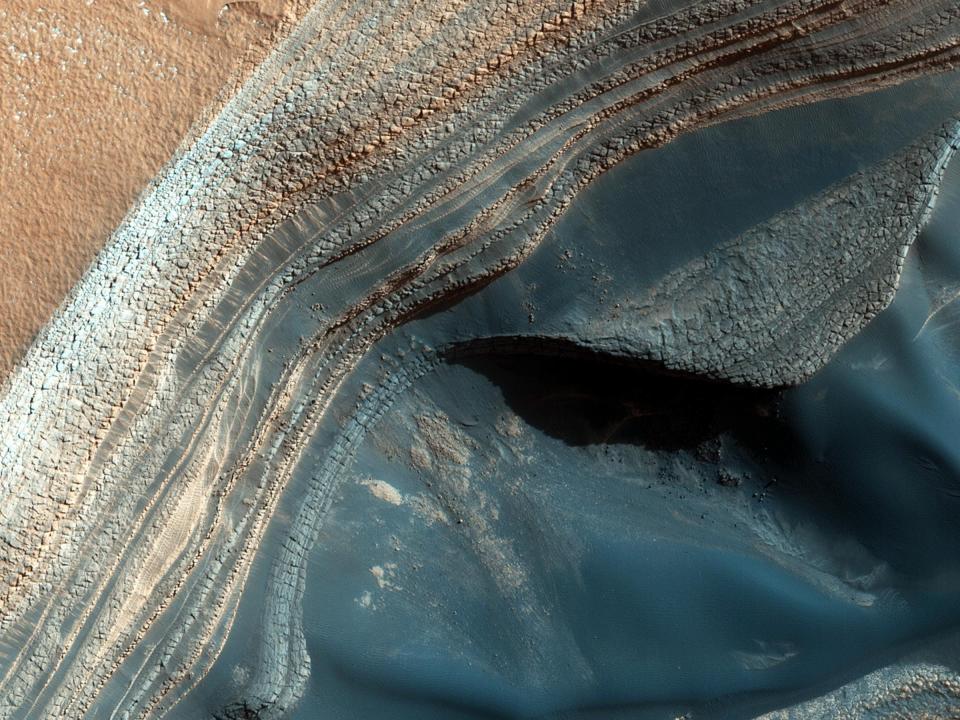Scientists detected a set of salty lakes on Mars, hidden below the glaciers of its south pole

Mars has a series of saltwater lakes beneath the glaciers of its southern ice cap, researchers say.
These hypersalty patches of liquid water could harbor microbial alien life.
NASA's Perseverance rover is traveling to Mars to search for signs of extraterrestrial life.
Scientists have detected a series of saltwater lakes beneath the glaciers of Mars' southern ice cap. The researchers think the liquid in these lakes doesn't freeze and become solid, despite the low temperatures of Mars' glaciers, due to its extremely high concentrations of salt.
The Mars Express spacecraft, which has been surveying the red planet since 2005, had previously detected signs of a subglacial lake basin on Mars' south pole, but it was unclear whether the lake was liquid or what it contained.

To find out, a group of Italian, German, and Australian researchers applied a radio-echo technique that Earth satellites use to detect subsurface lakes in Antarctica. They scanned the area multiple times from 2010 to 2019, then published their results in the journal Nature Astronomy on Monday.
The analysis confirmed the liquid-water nature of Mars' underground lake, as well as its extreme saltiness.
Elena Pettinelli, a professor of geophysics at Italy's Roma Tre University who led the study, told NBC News that scientists are "much more confident now" that these Martian lakes exist.
"We did many more observations, and we processed the data completely differently," Pettinelli added.
What's more, the researchers also found "a more extensive, complex scenario with ubiquitous water patches surrounding the subglacial lake," according to the study.
The discovery offers yet another possible habitat for life to persist on Mars.
Ancient life may have retreated to underground lakes on Mars
Scientists think the Martian surface was once rich with rivers, lakes, and seas, but all the surface water evaporated as a flow of particles from the sun stripped away the planet's atmosphere. Earth's strong magnetic field, by contrast, has allowed it to hold onto its atmosphere and its surface water.

Any microbial life that might have existed on Mars' surface might have over time migrated underground as water disappeared — perhaps to lakes like the ones beneath the red planet's south pole.
The new research indicates that such lakes could be common on the planet.
"The existence of a single subglacial lake could be attributed to ad-hoc conditions such as the presence of a volcano under the ice sheet, or some other situation unique to the specific location where we found the first subglacial lake," Pettinelli told ScienceAlert. "The discovery of an entire system of lakes instead suggests their formation process to be relatively simple and possibly common."

Some scientists are skeptical, though.
Planetary scientist Jack Holt told NBC that the subsurface water Pettinelli's team describes is "at best, patchy wet sediment."
"But even that is a stretch," Holt said, since that Mars may simply be too cold for even subsurface, hypersalty water.
Plus, if these lakes were liquid, "there should be springs flowing out along the edge of the polar cap," he added, "and that is not the case."
It is not known whether Mars ever hosted life. To investigate that question , NASA launched its nuclear-powered Mars Perseverance rover in July. It's set to search for signs of ancient life on the red planet's surface and prepare Martian rock samples for a future mission that would return them to Earth. Perseverance is expected to land on Mars on February 18, 2021.

"Is there life out there? We have, for 20 years, learned about the environment of Mars and are ready to ask that," NASA Administrator Thomas Zurbuchen said during a broadcast of the rover's launch. "For the first time in decades, [an] astrobiology mission? We're ready for it."
Read the original article on Business Insider

